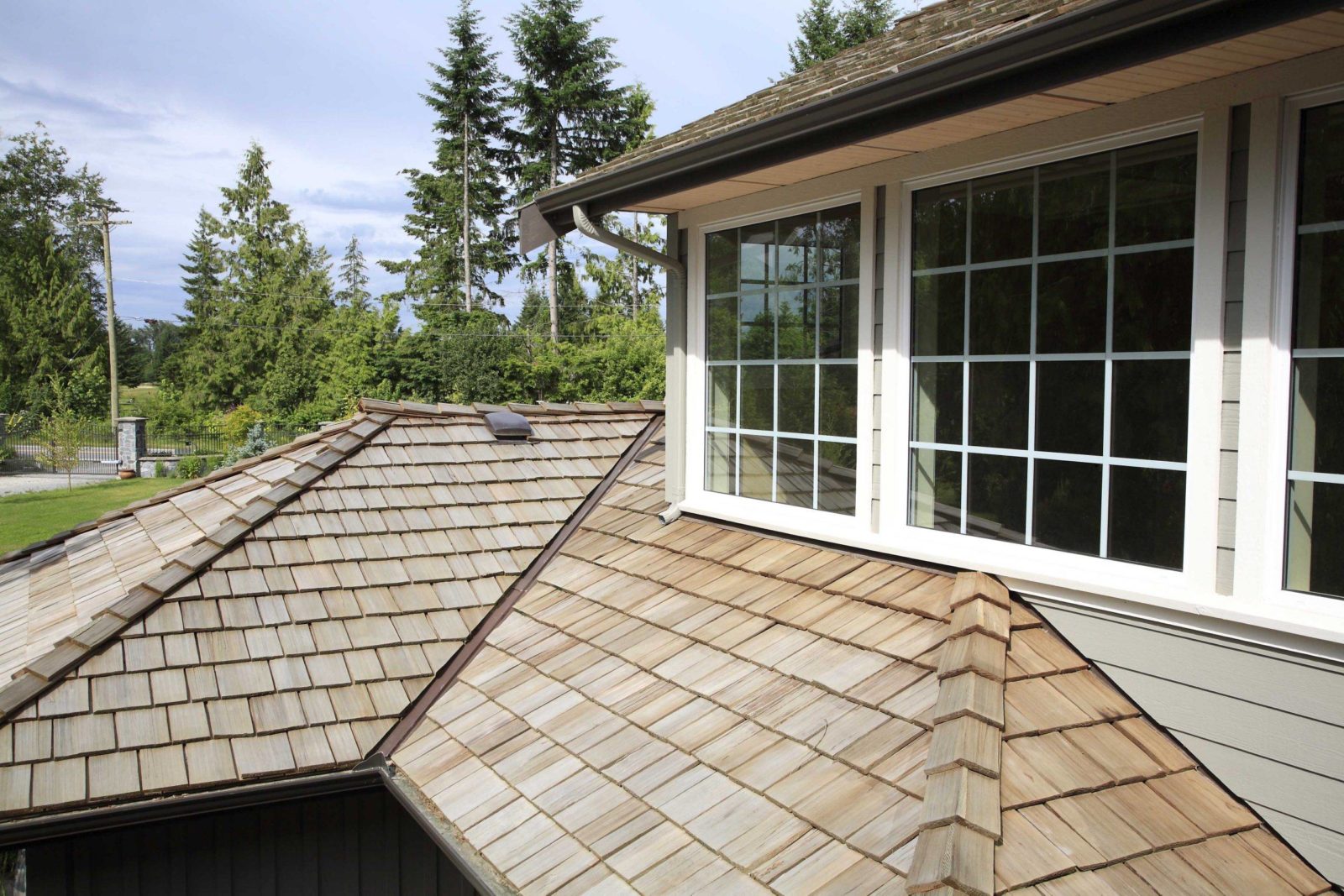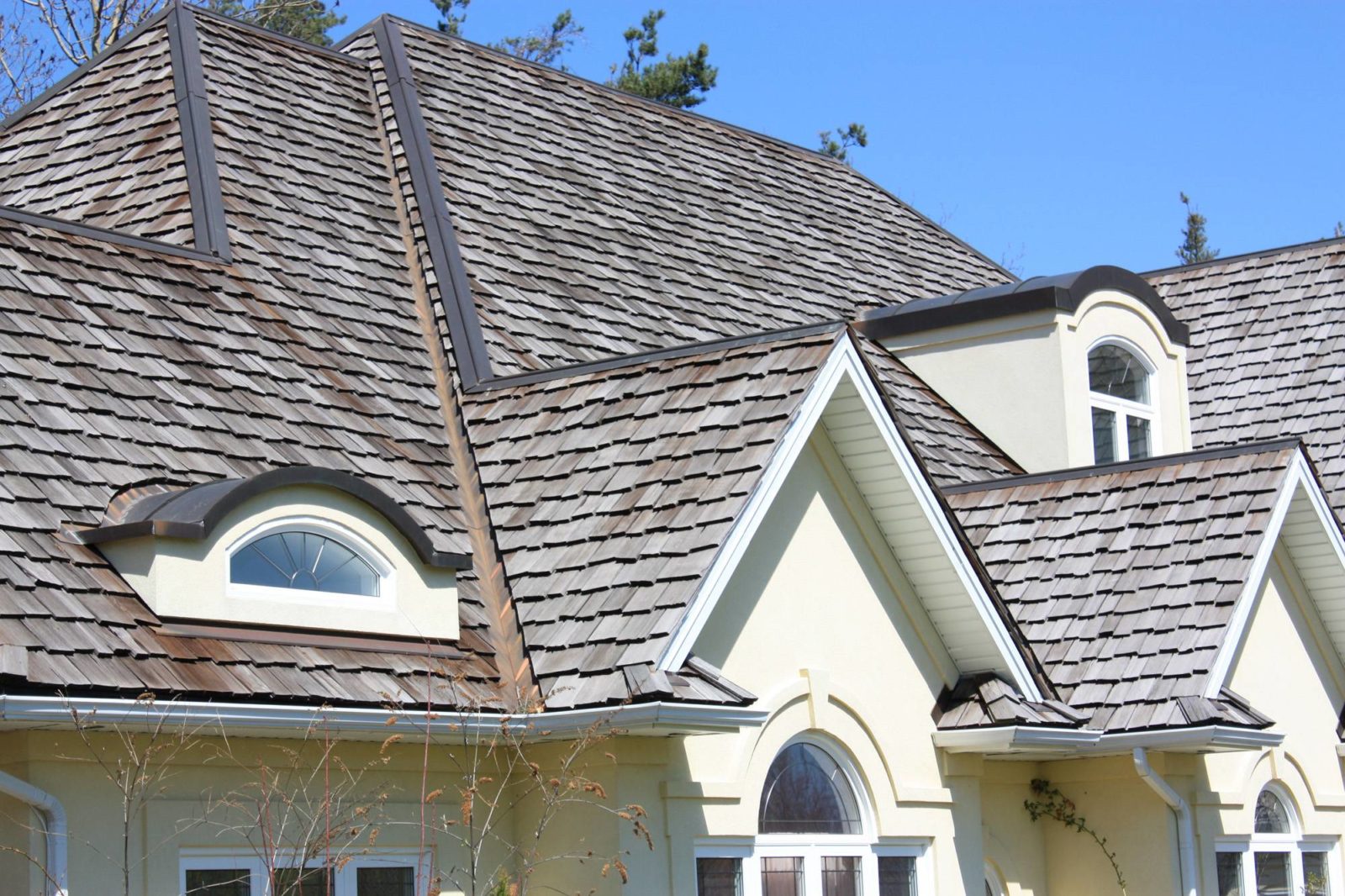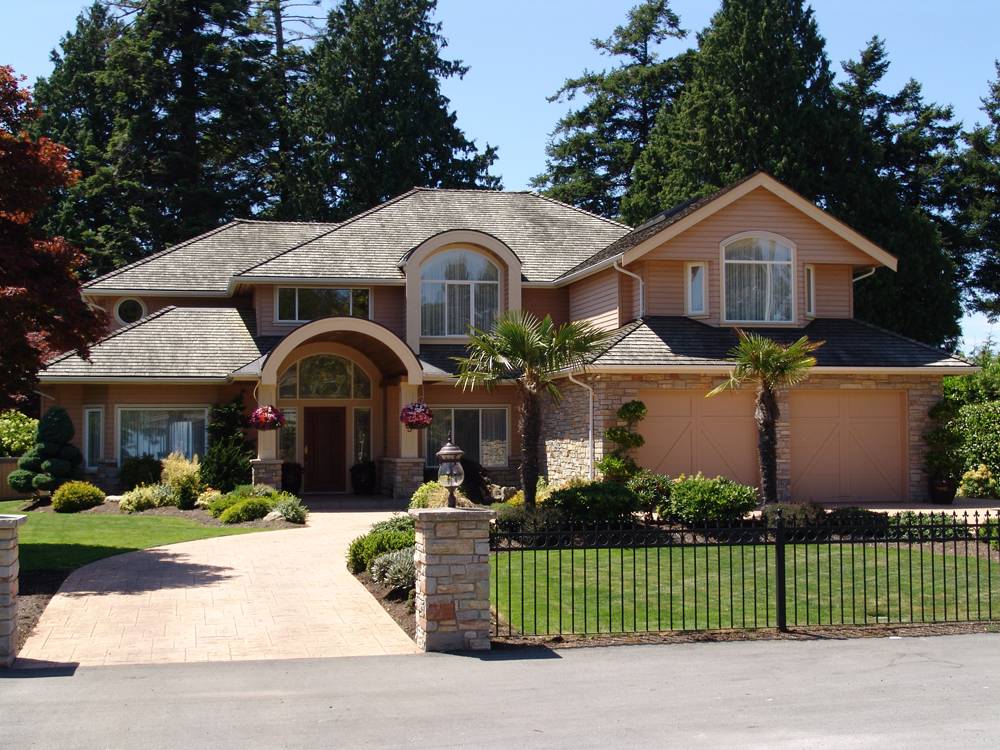As a roof system, Western Red Cedar Shakes and Shingles stand up well to the harsh demands of the Pacific Northwest climate, making cedar a popular choice for sustainability, durability, and curb appeal. Warm and rustic these roofing shingles are products well known for their beauty and character and offer an added aesthetic appeal proven to keep the roof of any house attractive for years. When made from natural wood, shakes tend to be more expensive than some other materials but in general, cedar shake shingles will last much longer than asphalt shingles. With correct maintenance, your cedar roofing can remain in quality condition for up to 50 years or longer. Red Cedar shakes have tannins that protect the shingles against decay and insects.


White cedar is not used as often as red, but an advantage is that they can be stained to a custom color. Cedar shakes are sawn smooth on both sides and tapered, generally speaking, cedar shakes are more durable and last longer than shingles because they are thicker and made from premium grade wood giving a heavy textured traditional look to roofing. Cedar needs to breathe so ventilation is key to longevity, surface areas and keyways (spaces between shakes and shingles) should be kept clear of leaves, branches or other debris that can build up on the roof. Without treatments and constant exposure to the sun’s UV rays and elements from the weather, cedar shakes can degrade over time, suffering from fungus and algae growth if not properly treated.
Most importantly, without treatment, cedar shake shingles are more susceptible to catch on fire. Although when properly installed and maintained cedar shakes can offer outstanding value both as a building material and as an increasingly smart environmental choice, ultimately reducing the carbon footprint of any house. The proven long-term durability and natural beauty of shingles are unquestioned and this renewable resource, grown in Canada helps keep homes warm in the winter and cool in the summer. As a roof system, Western Red Cedar Shakes and Shingles stand up well to the harsh demands of the Pacific Northwest climate, making cedar a popular choice for durability, and a warm rustic natural look appearance.

